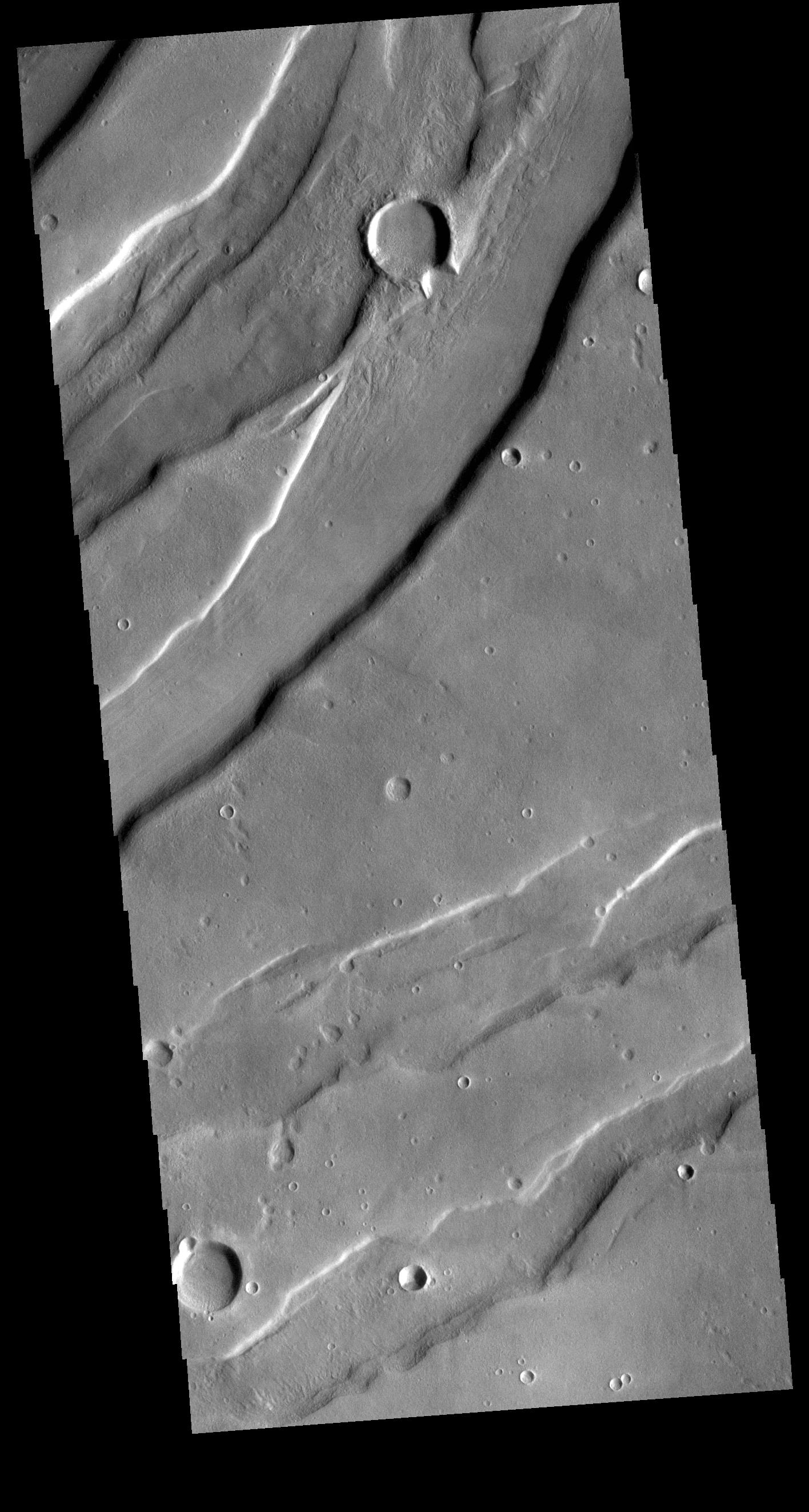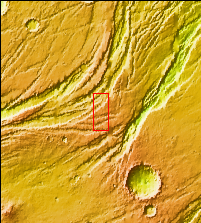
|
Tempe Fossae
- Click the image above for a larger view
- Full-Res JPEG (1416 x 2646) (391.8 kB)
- Full-Res TIFF (1416 x 2646) (2.7 MB)
Caption:

Context image
Today's VIS image is shows a small portion of Tempe Fossae. The fossae are graben comprised of paired, parallel fractures with a down-dropped block of material between the fracture set. This morphology is created by extensional tectonic stresses. This image is located in a region of Tempe Terra that is complexly fractured. The complete fossae system in almost 2000 km (1242 miles) long.
Orbit Number: 80189 Latitude: 39.8621 Longitude: 286.175 Instrument: VIS Captured: 2020-01-12 02:09
Background Info:
Please see the THEMIS Data Citation Note for details on crediting THEMIS images.
NASA's Jet Propulsion Laboratory manages the 2001 Mars Odyssey mission for NASA's Science Mission Directorate, Washington, D.C. The Thermal Emission Imaging System (THEMIS) was developed by Arizona State University, Tempe, in collaboration with Raytheon Santa Barbara Remote Sensing. The THEMIS investigation is led by Dr. Philip Christensen at Arizona State University. Lockheed Martin Astronautics, Denver, is the prime contractor for the Odyssey project, and developed and built the orbiter. Mission operations are conducted jointly from Lockheed Martin and from JPL, a division of the California Institute of Technology in Pasadena.
Cataloging Keywords:
| Name | Value | Additional Values |
|---|---|---|
| Target | Mars | |
| System | ||
| Target Type | Planet | |
| Mission | 2001 Mars Odyssey | |
| Instrument Host | Mars Odyssey | |
| Host Type | Orbiter | |
| Instrument | Thermal Emission Imaging System (THEMIS) | |
| Detector | ||
| Extra Keywords | Grayscale, Thermal | |
| Acquisition Date | ||
| Release Date | 2020-03-27 | |
| Date in Caption | 2020-01-12 | |
| Image Credit | NASA/JPL-Caltech/ASU | |
| Source | photojournal.jpl.nasa.gov/catalog/PIA23815 | |
| Identifier | PIA23815 | |
